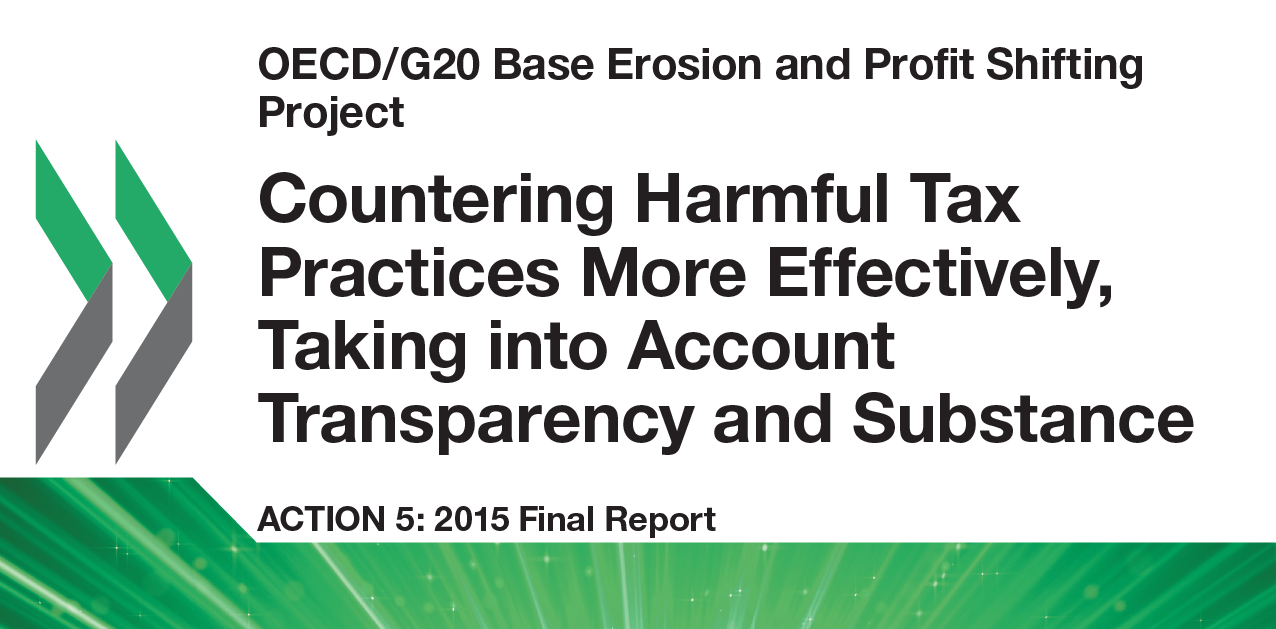BEPS Action 5: Countering Harmful Tax Practices

The BEPS initiative comprises 15 action plans, but only four of them are mandatory for all participating countries, referred to as Minimum Standards. BEPS Action 5 is one of these Minimum Standards, making its impact on international tax far greater than the non-mandatory actions.
BEPS Action 5 is titled Countering Harmful Tax Practices More Effectively, Taking into Account Transparency and Substance. This action focuses on three main areas:
- Assessing and countering potentially harmful tax regimes in various jurisdictions. It identifies tax regime features that may facilitate tax avoidance by multinational enterprises (MNEs) and create unfair tax competition.
- Improving transparency in tax rulings globally through monitoring and peer reviews to prevent companies from exploiting opaque rulings for tax avoidance.
- Introducing economic substance requirements for jurisdictions with zero or nominal tax rates, ensuring fair competition across the globe.
I. The Three Major Issues in Global Corporate Tax Avoidance
1. Harmful Tax Regimes
In the past, some jurisdictions designed harmful tax incentives to attract investments, often at the expense of other jurisdictions. For example, certain European countries (e.g., the Netherlands) offered tax breaks on intellectual property (“IP”) income, encouraging MNEs to shift IP and profits there, reducing the tax base of other jurisdictions. Simply put, tax incentives that do not facilitate cross-border tax avoidance are generally not considered harmful.
2. Lack of Transparency in Tax Rulings
In some jurisdictions, tax incentives for MNEs are granted through tax rulings rather than codified tax laws. On the surface, these companies may appear to be paying taxes like any other business, but in reality, they pay little to no taxes.
The Lux Leaks scandal is a prime example. In 2014, the International Consortium of Investigative Journalists (“ICIJ”) revealed 548 tax rulings issued by the Luxembourg tax authority between 2002 and 2010, facilitated by PricewaterhouseCoopers (“PwC”) for over 340 MNEs. These rulings were designed to grant tax benefits not explicitly outlined in Luxembourg’s tax laws or policies.
3. Tax Havens with No Economic Substance
The issue with tax havens like the British Virgin Islands (“BVI”) is not just their zero-tax policies but also the fact that many companies there are shell companies (i.e., they have no physical offices or employees in the jurisdiction, a concept known as "lack of economic substance" in international tax). These shell companies generate massive profits shifted from other jurisdictions without contributing any real economic value. Profits should align with value creation, but shell companies in tax havens blatantly violate this principle. Economic substance ensures that companies’ profits are commensurate with their value-creating capabilities, such as having sufficient offices and employees.

